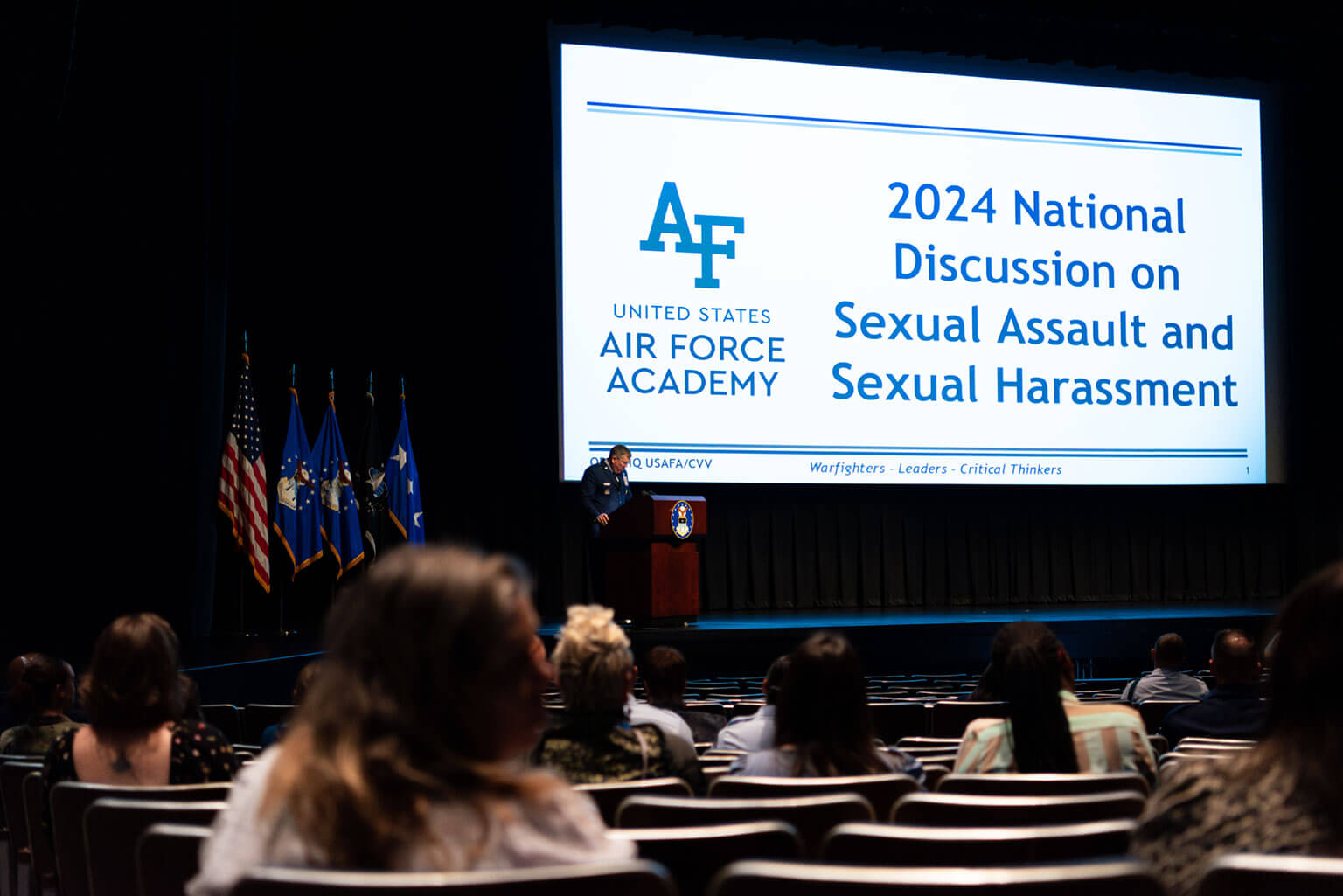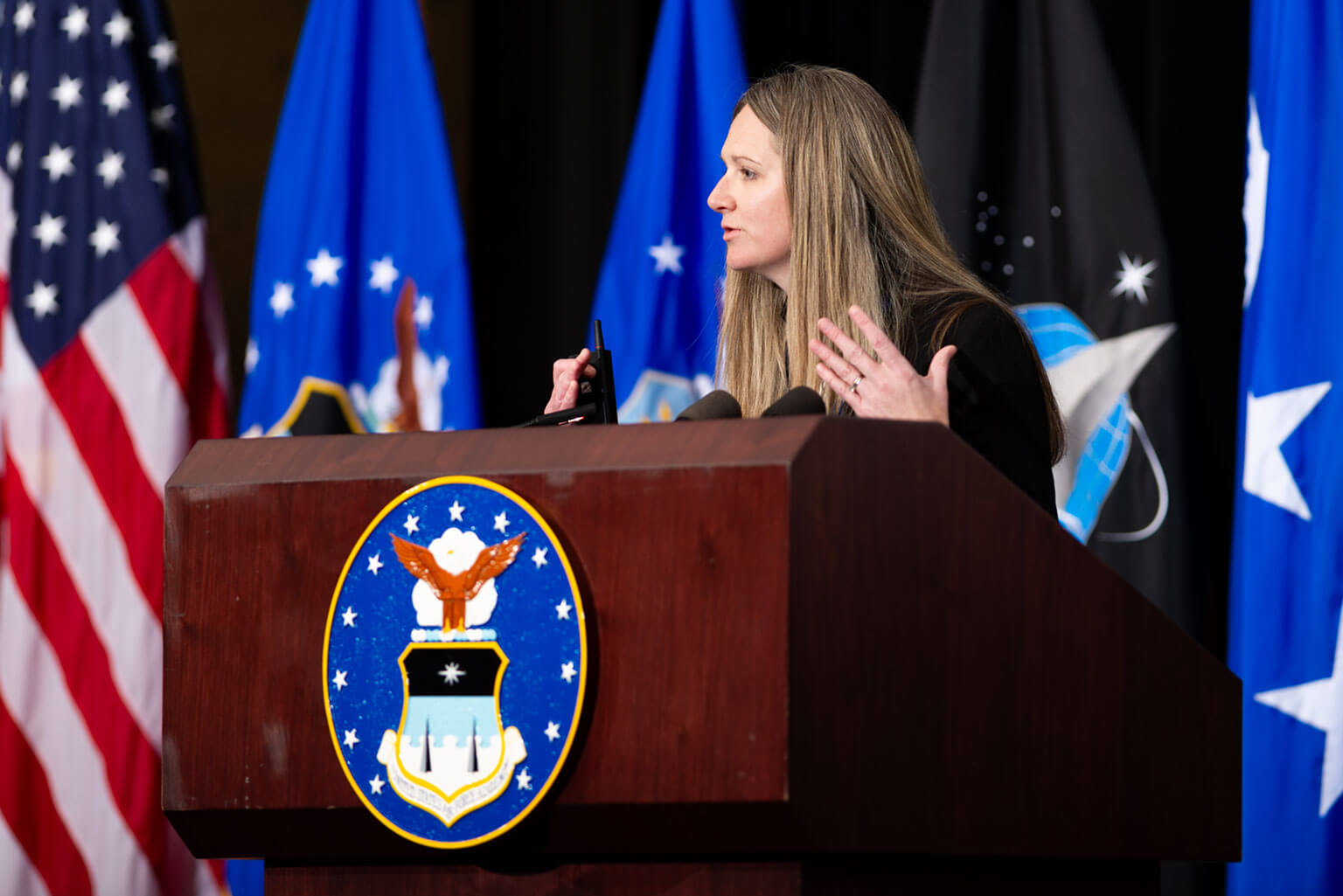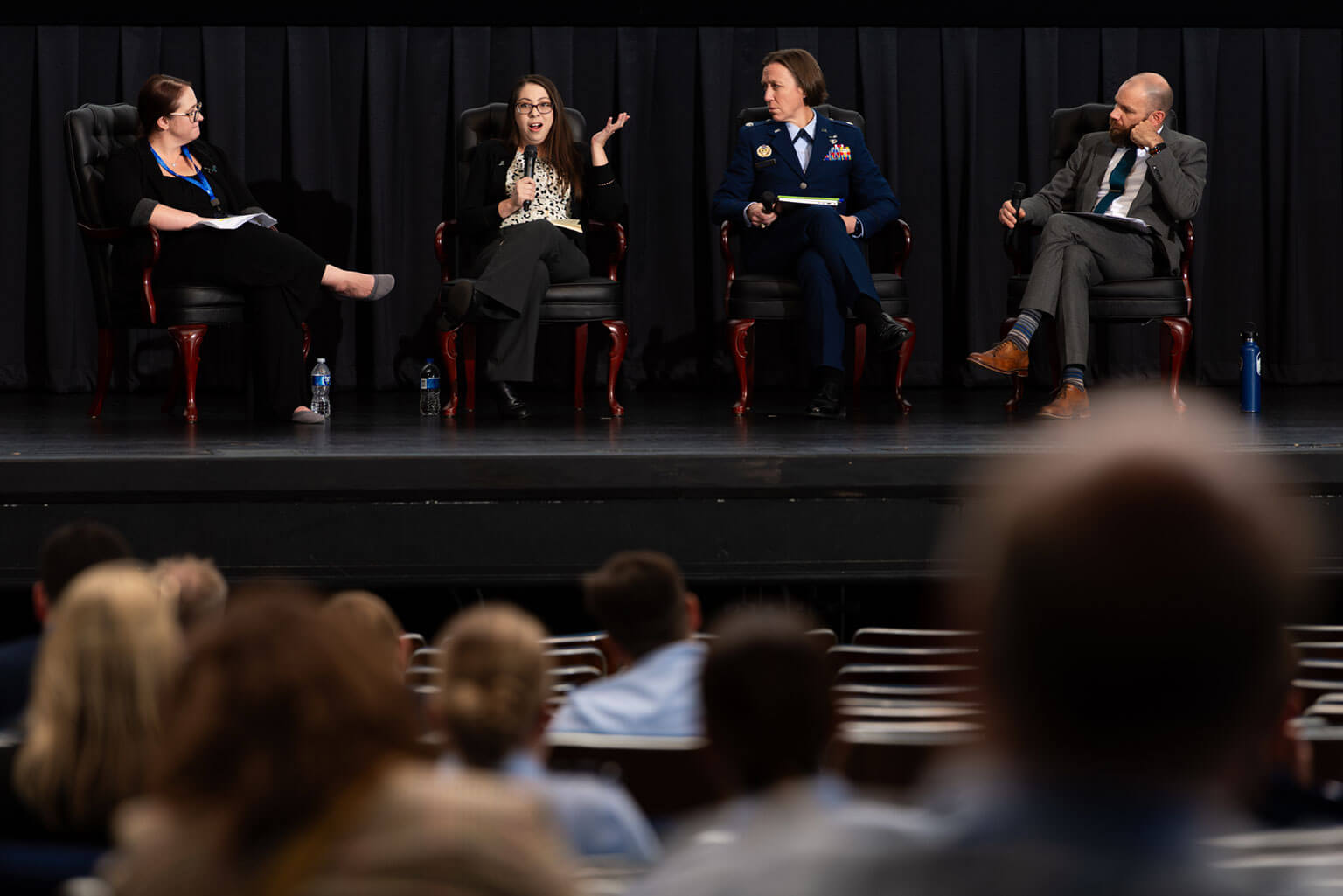2024 National Discussion empowers military service academies to cultivate healthy culture climates

U.S. Air Force Academy Superintendent Lt. Gen. Tony Bauernfeind delivers opening remarks at the 2024 National Discussion on Sexual Assault and Sexual Harassment at America’s Colleges, Universities and Military Service Academies Sept. 11, 2024. The three-day event empowers student communities to cultivate healthy culture climates with the goal of eliminating sexual assault and harassment. (U.S. Air Force photo by Ray Bahner)
By Randy Roughton
U.S. Air Force Academy Strategic Communications
U.S. AIR FORCE ACADEMY, Colo. – The U.S. Air Force and the U.S. Air Force Academy co-hosted the 2024 National Discussion on Sexual Assault and Sexual Harassment at America’s Colleges, Universities and Service Academies Sept. 11-12.
The theme of this year’s National Discussion was “Transforming Culture to Eradicate Sexual Violence.” Subject matter experts covered topics such as institutional contributors to harassment and sexual violence and building an empathetic workplace by creating a human-centered culture.
To open the Discussion, Superintendent Lt. Gen. Tony Bauernfeind challenged those in attendance to not only share prevention practices but also implement strategies and prevention measures.
“We have spent enough time talking,” Bauernfeind said. “It is time for action.”
Service academies team up for sexual assault dialogue
The Department of Defense military academies hosted a tri-department event, initiated by all three service secretaries, to generate a dialogue with America’s colleges, universities and service academies to combat and eradicate sexual assault and sexual harassment from campuses nationwide. Colleges and universities across the country have been focused on how to prevent sexual assault and harassment.
“Just as we prepare our warfighters to win against foreign adversaries, we must prepare our future leaders to fight against the adversaries of predators, cultural acceptance or casual attitudes,” Bauernfeind said. “We must equip our future leaders to create a culture where we protect one another and never allow someone in our midst to inflict harm on one of our own.”

Dr. Stephanie Bonnes, a University of New Haven assistant criminal justice professor, delivers the keynote address at the 2024 National Discussion on Sexual Assault and Sexual Harassment Sept. 11, 2024. Bonnes spoke about “Bureaucratic Harassment, Spatial Dynamics and Institutional Contributors to Harassment and Sexual Violence in the Military.” (U.S. Air Force photo by Ray Bahner)
Bureaucratic Harassment, Spatial Dynamics, and Institutional Contributors to Harassment and Sexual Violence in the Military
In her keynote address, Dr. Stephanie Bonnes said organizations have a fundamental obligation to protect their people.
Bonnes’ research focuses on gender and the intersections of victimization, identity, inequality, violence, and organizations. Her book, “Hardship Duty: Women’s Experiences with Sexual Harassment, Sexual Assault, and Discrimination in the U.S. Military,” examines sexual abuse in an organization that has dynamic policies, prevention strategies and evolving education programs.
“Leadership matters,” Bonnes said. “Leaders must actively step in when people on their teams are denigrated or harassed, and peers might do the same. Framing harassment for units as force multipliers could indicate to service members that harassing other members puts the unit at risk. It should be discussed often and seen as a way to protect the institution.”

A panel of Dr. Adriane Weaver, Dr. Marni Kan, Dr. Emily Stoneham and Dr. Austin Lawhead speak about “Leveraging Evidence-Based Strategies” at the 2024 National Discussion on Sexual Assault and Sexual Harassment at America’s Colleges, Universities and Military Service Academies Sept. 11, 2024. Each year, the Academy joins its sister services for the event to generate a dialogue with the colleges, universities and service academies to combat sexual assault and harassment across campuses nationwide. (U.S. Air Force photo by Ray Bahner)
On Building the Empathetic Workplace: Creating a Culture that is Human-Centered and Trauma-Informed
Katharine Manning opened her keynote presentation with the Army’s investigation into a crash of an airplane that killed all 248 Soldiers onboard near Gander, Newfoundland, in 1985. The military’s study of how this type of accident affects a unit’s cohesion and mission readiness found that leadership was the biggest factor.
“In particular, these are leaders who could acknowledge trauma and grief and provide tangible support to those who needed it,” Manning said. “Most importantly, they modeled healthy responses to grief themselves. I have always been impressed by military units pulling together in the hardest times. Still, the one area where we need a little bit more of that is sexual violence.”
In her presentation, Manning demonstrated that “trauma-informed leadership” is essential in building cohesive, productive and resilient teams. The presentation was based on her book, “The Empathetic Workplace: Five Steps to a Compassionate, Calm and Confident Response to Trauma on the Job.”
Manning provided tools to help attendees build a “trauma-informed organization.” She defined the term as an organization that understands they might have people in trauma and do their best to support them and mitigate its effects.
“All of us should take steps to create the kind of work environment where people in trauma feel supported and where we are doing our best to avoid causing more trauma in the future,” she said.
Next year, the discourse around sexual harassment and assault on academic campuses will continue. The 2025 National Discussion will be hosted by the U.S. Naval Academy.